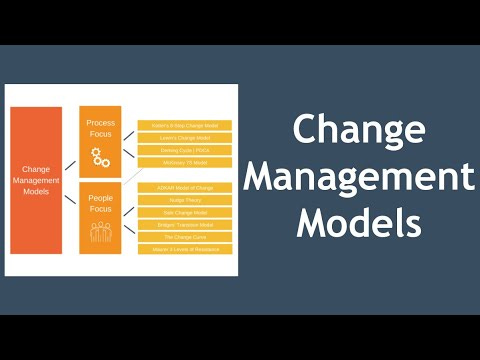What if our change management models don't work in the digital age? I really don't know where that idea came from! But it bothered me when I was preparing an online course on Starting and Managing an OD Consulting Services Studio.
Let's assume that for a client, you've carefully examined the context and related issues and made a rough sketch of what changes would be required. Then what?
Find your change management model. Then apply it consistently and coherently. Easy. Right? Not so fast!
Finding the Right One
Finding the right model is complicated. It's like this OD newbie scouring endless shelves for the right lipstick just to find one that's right and comfortable. In addition to the many known (and unknown!) factors to consider, there are many change models to choose from. And even when the choices are limited to just three options, it's very difficult to individually describe those choices and their suitability for the client. It's like presenting a strange framework in our OD classes, starting with hypotheses, definitions of terms, practice scenarios, strengths and weaknesses, and much more. And by the time the explanation is done, the client may already be overloaded with information. Bored. Closed mind. And may have missed the points that matter.
Choosing a change model depends on the industry, organization culture, and specific concerns of the client. No single magic bullet here. Don't think that YouTube or TikTok will help your client choose.
Plethora of Options
Imagine considering one of these five popular change management options. Agile methodology (for software, BPO, startups), Lewin's model (primarily for governments and non-profits), Kotter's 8-Step Change, Bridge's Transition model, Satir model (for entertainment, academics) and the ADAPT framework (for MSMEs and family businesses). Different industries can indicate which models are better suited for which types, but this requires professional judgment as models can be combined with each other to improve their effectiveness.
Stickiness
Whether you made a good or a bad choice, making the change stick throughout implementation is also tricky. Many OD models are easy to explain due to their popularity, utility, and simplicity. SWOT for planning, Eisenhower matrix for decision making, just to name a few. But change models require much more clarity as the client weigh each option’s consequences. Stickiness, starting with clarity and understanding, is where the model becomes purposeful. Complex change requires more explanations (for the practitioners) and more understanding (for the clients). More explanations lessen the chances that the expected change might see the light of day. Or delay the “GO“ decision. And signal what the client’s future commitment (and involvement!) in the change process might be.
I found the Knoster change management model as a good example. Created by Hendrik Knoster, a change management expert in 1990, the model provides a systematic way to address the challenges of change implementation. It is clear yet simple. Complete yet elegant way to present the essence of change management tactics. Even in complex situations!
It consists of the following six elements: Vision, Consensus, Capabilities, Incentives, Resources, Action Plans. Missing elements can cause the process to fail.

OD Practice Matters
Interestingly, the more you do change management, the more proficient you become. With proficiency, the insight to simplify any change management framework into a single and easy-to-understand OD tool.
NOTES
Forthcoming Courses for OD Professionals
OD Conversations:The Hybrid Set-up: The Worst of Both Worlds with Ms Christine Go of DDI Phils. Wednesday, April 19, at 10am to 12nn, via zoom.
Tita Puangco and Milalin Javellana ESSENTIALS OF OD, April 18 (In-Person)
Dr. Josephine Perez PROCESS OBSERVATION AND ANALYSIS, June 27-28
Dr. Joy Calleja OD DIAGNOSIS, September 6 (In-Person)
Dr Melissa S Reyes Designing OD Interventions November 17(In-Person)
Pre-Event Announcement: ODLAB 2023: REIMAGINE OD on July 20—21, 2023 in Davao. Save the date!!!
Dr. Ed Canela Courses:
1. STARTING AND MANAGING YOUR OWN OD CONSULTING SERVICES Studio April 14 and 21, 2023, (online) for Php 5,000 Southeast Asia Interdisciplinary Development Institute (SAIDI) Graduate School of Organizational Development and Planning. Email interest to Ms. Cynthia Cruz.



